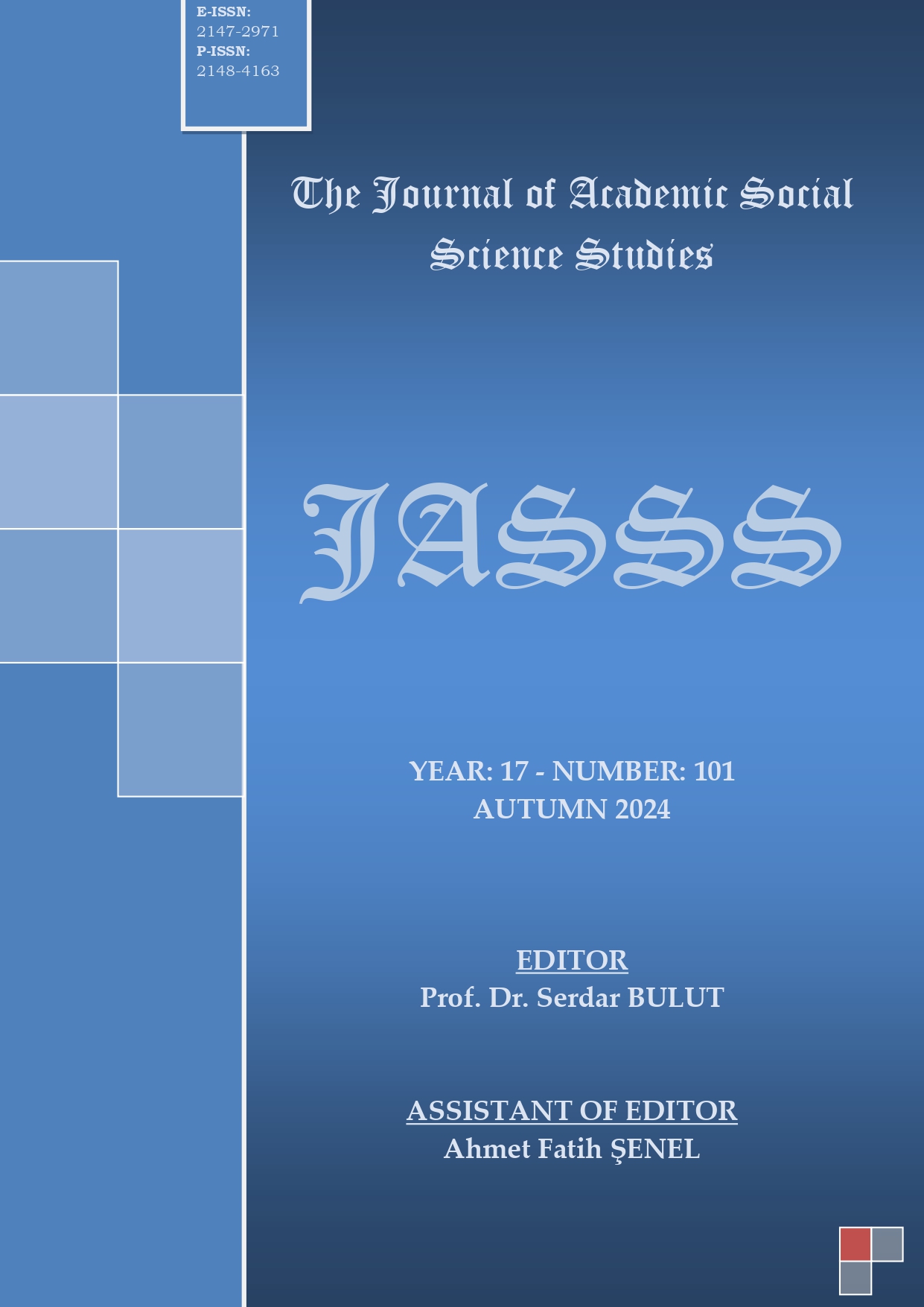Author :
Abstract
Bu çalışmada 6 Şubat depreminde en çok yıkıma uğrayan Hatay ilinde yaşayan bireylerin deprem korkularının düzeyin belirlenmesi, bu korku düzeyinin onların sosyal ve duygusal yalnızlıklarına etki edip etmediğini belirlemek amaçlanmıştır. Genel tarama yöntemi ile nicel biçimde yapılan çalışmaya amacı kapsamında kolayda örnekleme yöntemi ile belirlenen 435 depremzede katılım göstermiştir. Çevrimiçi yöntemle verilerin temin edildiği çalışmada “Kişisel Bilgi Formu”, “Deprem Korkusu Ölçeği” ve “Sosyal ve Duygusal Yalnızlık Ölçeği” kullanılmıştır. Veri analizinde SPSS paket programının kullanıldığı çalışmada, verilerin normal dağılımdan sapmadığı için parametrik testlerden yararlanılmıştır. Böylece bağımsız gruplarda t testi, ANOVA, pearson korelasyon ve basit doğrusal regresyon testleri uygulanmıştır. 435 depremzede araştırmaya katılım göstermiştir. Bu depremzedelerden %62.3’ü 18-24 yaş arası, %20.7’si 25-29 yaş arası, %17’si 30 yaş ve üzeri yaş grubundadır. %66.9’unu kadınların oluşturduğu katılımcı gurubunda %33.1 oranında erkek katılımcı bulunmaktadır. Katılımcıların %81.1’i bekâr, %18.9’u evli ve %5.5’i ilkokul, %6.2’si ortaokul, %19.1’i lise, %67.8’i üniversite ve %1.4’ü yüksek lisans ve üzeri mezunudur. Göçük altında kalma durumunun araştırıldığı maddeye depremzedelerin %43.4’ü “evet” yanıtını verirken, %56.6’sı “hayır” şeklinde cevaplamıştır. Yakınlarını kaybeden katılımcı oranı %45.7’dir. Depremin neden olduğu ev veya iş kaybını yaşayan depremzede oranın ise %32.2 olarak belirlenmiştir. Yapılan analizler neticesinde depremzedelerin deprem korkularının onların sosyal ve duygusal yalnızlıkları üzerinde pozitif ve anlamlı bir etkisinin olduğu belirlenmiştir.
Keywords
Abstract
In this study, it was aimed to determine the level of earthquake fear of individuals living in Hatay province, which suffered the most destruction in the February 6 earthquake, and to determine whether this level of fear affects their social and emotional loneliness. Within the scope of the study, which was conducted quantitatively with the general survey method, 435 earthquake survivors determined by the convenience sampling method participated in the study. "Personal Information Form", "Earthquake Fear Scale" and "Social and Emotional Loneliness Scale" were used in the study in which data were obtained by online method. In the study where SPSS package program was used for data analysis, parametric tests were used since the data did not deviate from normal distribution. Thus, independent groups t test, ANOVA, Pearson correlation and simple linear regression tests were applied. 435 earthquake survivors participated in the study. Of these earthquake survivors, 62.3% were between the ages of 18-24, 20.7% between the ages of 25-29, and 17% between the ages of 30 and above. 66.9% of the participants were female, while 33.1% were male. 81.1% of the participants were single, 18.9% were married, and 5.5% were primary school graduates, 6.2% were secondary school graduates, 19.1% were high school graduates, 67.8% were university graduates, and 1.4% had a master's degree or higher. While 43.4% of the earthquake survivors answered "yes", 56.6% answered "no". The rate of participants who lost their relatives is 45.7%. The proportion of earthquake victims who lost their homes or jobs due to the earthquake was 32.2%. As a result of the analyzes, it was determined that the earthquake fears of the earthquake survivors had a positive and significant effect on their social and emotional loneliness.





